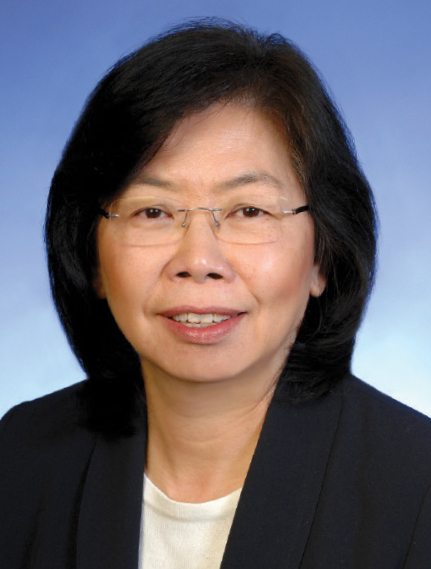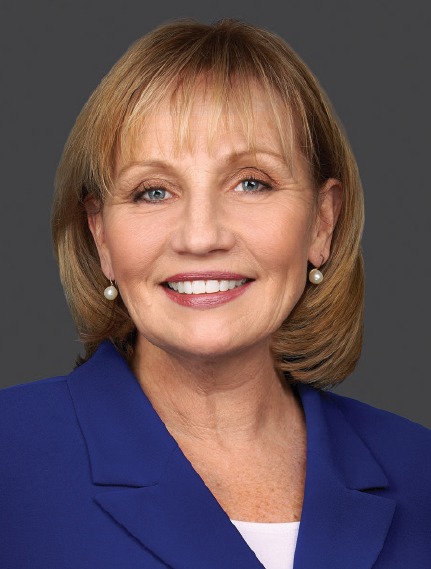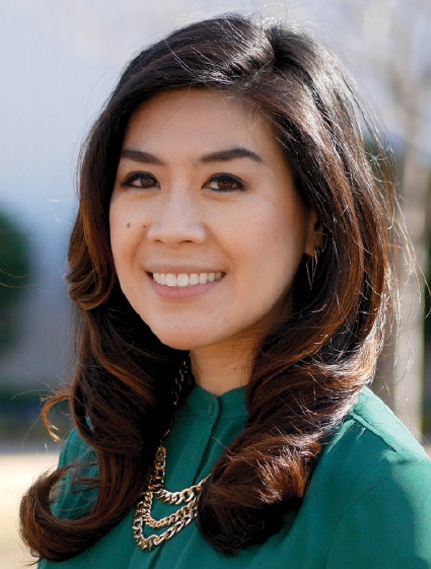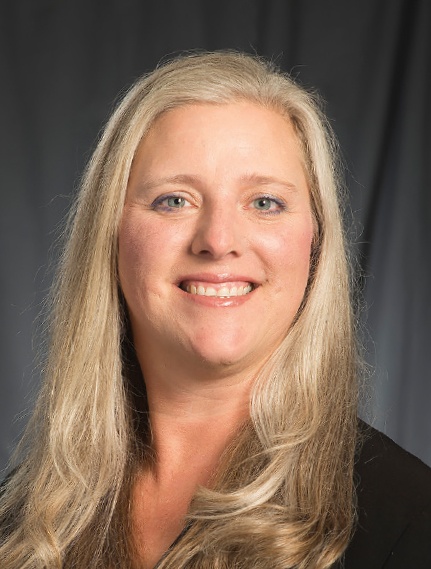
New Jersey Women in Business: In Their Own Words
A handful of some of the Garden State’s most successful women talk with New Jersey Business about corporate America, and offer advice for other women.
By George N. Saliba, Managing Editor On Aug 30, 2018A veritable vortex of issues surrounding women’s rights has arguably been front and center in national – and, in many cases, international – discourse in recent years, and a wide spectrum of viewpoints are passionately held by organized groups and individuals alike. Against this backdrop, and in tandem with the New Jersey Business & Industry Association’s (NJBIA’s) Women Business Leaders Forum, to be held September 14, New Jersey Business magazine conducted interviews with 4 of the 30 event participants regarding their thoughts on women in business, with a special emphasis on their birds’ eye views of corporate America, and, moreover, their “unique tips and advice” for how women can advance in business, across many realms.
Yuk Louie

Yuk Louie
Yuk Louie, manager, research and development support services, ExxonMobil Research and Engineering, joined the company 38 years ago, in an era when there were very few women in the male-dominated industry – and in so many other sectors and industries as well. Of her dreams for society’s future, she says, “The utopia is that we see everybody as equal, and that we truly engage both males and females in the decisions that we [make], and the teams that we create; that people would never feel that they are less a citizen because of their gender or their race … just [to have] more of the civility of being more inclusive. I think that’s what I would really like to see happen; that nobody has to say, ‘Wow. Look at this. This is the first female CEO we have in there.’ It shouldn’t even be highlighted anymore, because there always will be opportunities, so that there will never be so-called ‘firsts,’ anymore.”
Over the course of nearly four decades, Louie reports she has seen a change at ExxonMobil, where management now asks about the pool of potential job candidates, and whether or not there is a balance of women and men. Additionally, Louie explains that ExxonMobil is “working hard to make sure that we don’t have unconscious bias against the female. When I say unconscious bias, [that is, for example]: ‘Oh, she is a female. She probably doesn’t want to work out in the field.’ ‘She probably doesn’t want to work the long hours.’ ‘She can’t travel because she has got young kids.’ We make sure we are not having those [biases] influence the candidate pools that we have. Society is definitely changing, and we are getting away from the so-called traditional male roles versus the traditionally female jobs.”
Former New Jersey Lt. Gov. Kim Guadagno

Kim Guadagno
Former New Jersey Lt. Gov. Kim Guadagno, who is now a partner at the law firm of Connell Foley and a member of the board of directors at OceanFirst Bank, also knows first-hand how male-dominated work environments operated because she held several so-called “non-traditional” jobs: One as a federal prosecutor in organized crime and racketeering, and another as Monmouth County’s first female sheriff.
Regarding the prosecutor role, she tells New Jersey Business, “The first lecture I got when I walked in the door was: ‘This is an old boys’ network – this is back in the 1980s, when you could say stuff like that – and, ‘This is a locker room, and if you don’t like it, there is the door.’”
Guadagno says, “You had to make a choice, right then and there, as a woman: ‘How are you going to deal with that type of reaction?’ And the answer, for me, was always: Be better prepared than the other person. Have an incredible sense of humor, because you needed to deal with it in a way that was acceptable in the room you were in. You don’t want to have a chip on your shoulder, because if you are in a room full of men, you are not going to win that battle.
“However, if you use a little sense of humor, and a little self-deprecation in the room around you, I think you will be successful in what I hope will be the last of the locker rooms.”
Guadagno also cites her job as sheriff in Monmouth County (she had been elected in 2007): “That was a totally non-traditionally [female] job. I was the first woman sheriff in Monmouth County, and one of two, at the time, in the [entire] state. Not only do you need to have a sense of humor, but you need to seek out mentors in the area you are in. I sought out the warden of a jail; I considered him my mentor. … He has become a great friend.”
Ling-Ling Nie

Ling-Ling Nie
Ling-Ling Nie, chief compliance officer and assistant general counsel at Panasonic Corporation of North America, spoke with New Jersey Business about a range of topics, and even answered a question about some people’s notions about “femininity,” the premise of which may be controversial because it can be defined in many ways in today’s culture. She says, “There are very traditional ideas about how a leader conducts himself or herself. And those behaviors and those traits tend to be more assertive, a little bit brasher, than maybe a more feminine woman would feel more comfortable doing.
“But, I think what is important to know is that you only have to perform in certain ways, at certain times, during the day. If you are at a board meeting, or if you are in a briefing, or some type of senior executive meeting, that’s the time and place where you have to come across a little bit more authoritarian; a little bit more aggressive, and perhaps more masculine than you feel comfortable with. You don’t have to carry that persona with you every second of the day; that’s just the time when you have to perform in that manner. And then you can revert back to the way you are.”
Separately, in terms of aggregately advancing women, Nie cites flexible work environments: “I am seeing at Panasonic and at many other companies, too, that there’s a shift toward a more flexible work schedule, and I think that not only benefits women, but it benefits everyone …
“A move toward a more flexible work environment I think is going to clear the way for more people to realize that achieving a leadership position doesn’t mean that they are going to have to be strapped to their office desks. They are going to have the flexibility to arrange their lives in a way that makes most sense to them, and can help them still achieve what they want in their careers.”
Caryn Barnes

Caryn Barnes
Also in the realm of achievement, in September of 2015, Caryn Barnes, LSRP, PG, Michele O’Connor, PE, LEED AP, and Cristina Gonzalez, P.E. launched a new initiative at Langan – a company that is a provider of land development engineering and environmental consulting services – termed Women@Langan. During Barnes’ interview with New Jersey Business (Barnes is principal/vice president at Langan), she says that the group “fosters an atmosphere of mentorship and support to empower women to achieve career and personal success. We provide a community within the firm, where women meet, and we gather and share our experiences. We do lots of things from hosting guest speakers to planning workshops, and we cover a wide range of topics, for both personal and professional development. We also do a bit externally, networking with other women’s groups, at different firms and different organizations.”
Regarding her dreams for women in business across corporate America, she says, “I tie it more back to the idea of diversity: diversity of clients; diversity of people in workforces. I think diversity is a tough issue. Like-minded people with similar backgrounds tend to easily row in the same direction.
“When you have a diverse group of people you work with, it is a little more difficult, but, ultimately you come up with a much better product. I am excited to see what diversity is going to bring to [society’s] workforces. I do think it will be a much better product for everyone. And part of that dream, for me, is that the men have an important role to play, in being advocates for women and their senior women, and really helping them get in the room and achieve their personal success.”
Conclusion
Against the landscape of the societal tensions mentioned at this article’s beginning, a recurring statement among many women is the notion that, again, in effect, corporations might advance to the point where articles about “women in business” are outmoded by the progress women will make, and that ultimately women will be solely known as “executives who happen to be women,” and not “women executives.”
As with any widespread change, when that mountaintop is finally reached is anybody’s guess. Regarding men in corporate America, Panasonic’s Nie offers, “Something that I try to tell our male population here at Panasonic, when I hear from them that they feel like they are being unfairly painted as anti-women [by society], is this whole movement toward encouraging female leaders, and towards empowering female leadership is not meant so that we can stand on top of you. It is meant so that we can stand next to you, and be considered for the same opportunities – and be valued in the same way – that males have been valued, forever.”



